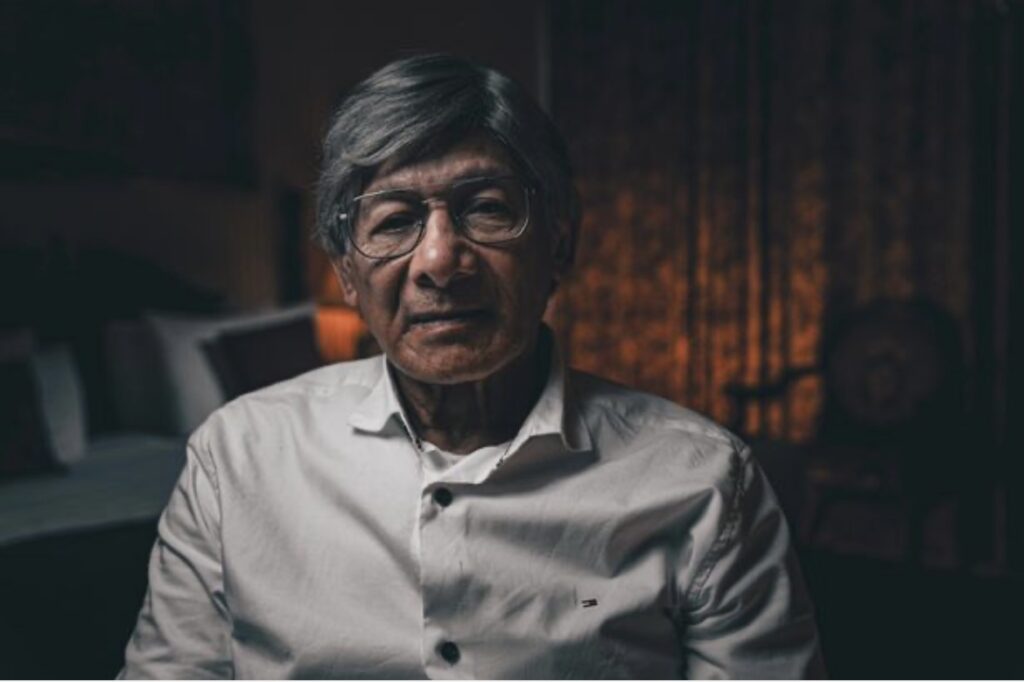Review: The Real Serpent: Investigations of a serial killer
This Channel 4 documentary is an attempt to analyse and interrogate the suspected serial killer Charles Sobhraj, whose crimes were made into a BBC drama called ‘The Serpent’ in 2021.
Born in Vietnam in 1944 and having endured a challenging childhood in France, he embarked on an early life of crime. In 1970 Sobhraj moved to India and was arrested for a jewellery heist, which is where his infamous crimes started. The murders took place in the 70s on the ‘hippy trail’ in south Asia, which is when Sobhraj and Canadian girlfriend Marie-Andree Leclerc, along with their accomplice Ajay Choudhury arrived in Bangkok.
Sobhraj would spend time with tourists posing as a gem dealer as a way of luring backpackers back to his apartment in the centre of Bangkok. Between 1972 and 1982 Sobhraj drugged, robbed, and brutally murdered young backpackers, and used victims’ names and passports to travel to various parts of Asia.
After many attempts to escape the legal system, Sobhraj was sentenced to 19 years in prison for the murder of two backpackers in the 1970s.
In 1976 he confessed to 10 murders for a book deal, but later withdrew these confessions. He is still linked to more than 20 other murders during this time.
On 23rd December 2022, Sobhraj was released from prison in Nepal and now walks the streets as a free man…
The first question posed to Sobhraj in episode 1 was “are you excited to do this documentary?”, he replies to this by saying “not only do I want to do it, I look forward to it”. Immediately from the first minute of the documentary Sobhraj says that he is willing to speak about anything, including to be asked about the alleged murders, already portraying a man who is confident, but we soon learn that this is not the case. He goes on to tell the audience why he is taking part in the documentary, which he is not being paid for, as he wants to clear up “false allegations” made against him, and that he wants to “put forward his facts and his truth.”
Although Sobhraj agrees to be challenged by professionals on the allegations, we find later in the programme through an interview with retired police chief inspector Jackie Malton that he does not reveal as much as he said he would.
The focus of Jackie Malton’s interview with Sobhraj is one of the key sources of evidence which is a biography about him published in 1979, ‘The Life and crimes of Charles Sobhraj’, in which he confesses on tape to 10 murders. She focuses on the five victims in Thailand and shows him crime scene photos of the bodies that had been burnt and were unrecognizable. He claims he has no idea who they are and has never seen them before. It’s clear in the documentary that the victims have not been forgotten.
It could be argued that it is distasteful to give Charles Sobhraj the platform that he has been given.
What I have found interesting particularly is that during this episode he speaks out about wanting to change public perceptions and to clear his name but one of the first questions that is presented to him is “who is Charles Sobhraj?”, he then goes on to say that he cannot reply to that, as it is up to the public to make that decision.
Although Sobhraj is a highly intelligent man he seems to contradict a lot of things he says, one minute he wants to clear his name, but then doesn’t know who he is and it’s down to the public to decide. This is a characteristic throughout all 3 episodes that we see of Sobhraj and that contradiction plays a huge role in his personality.
Channel 4 did incredibly well to get so many interviewees with close connections to Sobhraj’s crimes, including Angela Kane, ex-wife of Herman Knippenberg, the man who collected evidence against Sobhraj. Also, Nadine Gires, the neighbour of Sobhraj at his Bangkok apartment and the lawyer of Marie-Andree Leclerc. These interviews give us in-depth analysis of the real Charles Sobhraj, painting a completely different picture of him to what he says he is.
Disturbing re-enactments of scenes play throughout the documentary, which are similar to the BBC drama, although these images are distressing at times, for people who knew nothing about the murderer it gives the audience an idea of the sort of things he would do for financial and personal gain.
Retired detectives Jackie Malton and Gary Copson re-examine the five murders in Thailand, which Sobhraj has been linked to, but was never tried for. The importance of the interview with Sobhraj is that the victims were never heard and were never given a voice.
The detectives wanted to speak up on behalf of the deceased saying it was a “privilege.”
In the final interview, Jackie and Gary present Sobhraj with collections of evidence including, passports, items of clothing, objects with the victims’ signatures on them which were all found in Sobhraj’s apartment. A book on Buddhism, which had Teresa Knowlton’s signature on it (the first alleged victim of Sobhraj), was found in his safe.
Throughout the whole interview the man in question denies ever meeting these people, even though these items were found in his apartment by Thai police.
The constant denial from Sobhraj becomes extremely tedious for the audience.
He gives the same answers to every question and at the end of the interview claims that he would see the detectives in court as they are defaming him.
Charles Sobhraj’s weak and evasive answers become boring after episode 2. His attempt at trying to change the audience perspective when he gives no answers himself is poor. Even though he had no financial gain in the documentary, he got what he wanted which is media attention, good or bad.
